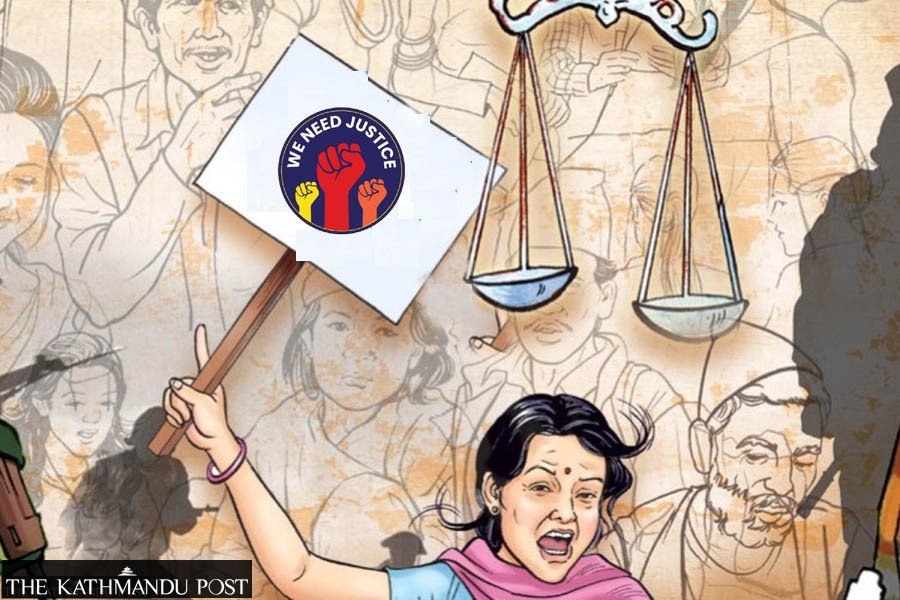Tue, Mar 3, 2026
Columns
On the Draft CIEDP Rules
A few targeted improvements could strengthen TJ and ensure accountability for enforced disappearances.
bookmark
Bipin Adhikari
Published at : August 4, 2025
Updated at : August 5, 2025 07:20
The Draft Commission for the Investigation of Enforced Disappeared Persons Rules, 2082, was prepared in the context of the third amendment to the Enforced Disappearances Enquiry, Truth and Reconciliation Commission Act, 2071 (2014), as amended in 2081 (2024). At the outset, this is a promising and well-drafted text. It moves in a strongly positive direction. The draft demonstrates both structural and procedural clarity, with a commendable effort to adopt a victim-centred and trauma-informed approach. Notably, it incorporates diverse models of truth—individual, collective, judicial, social, and restorative—which reflect a thoughtful engagement with the complexity of post-conflict truth-seeking.
The inclusion of scientific protocols for DNA collection, forensic exhumation and sample archiving aligns well with international forensic standards, particularly those outlined in the UN Model Protocol on the Investigation of Torture and Disappearance. The draft also appropriately filters out time-barred or irrelevant claims, which can enhance procedural efficiency and focus.
It is encouraging that the newly constituted Commission is actively seeking feedback from experts, legal practitioners, stakeholders, and—importantly—victims and their families. This openness to external input is essential for strengthening both the credibility and legitimacy of the Rules.
Nepal has a clear constitutional commitment to transitional justice. Alongside this, there is a legal and moral responsibility under international law to uphold key principles derived from international human rights treaties, customary international law and the jurisprudence of human rights bodies. Chief among these is the International Convention for the Protection of All Persons from Enforced Disappearance (ICPPED), which Nepal has yet to ratify.
Without going into technical details, I would briefly note that states are legally obligated to investigate all allegations of enforced disappearance promptly, thoroughly, and impartially—even when no formal complaint has been lodged. Investigations must begin without delay, be conducted by independent authorities and remain free from bias or conflicts of interest. Other essential elements include the protection of victims and witnesses, the right to truth, and the meaningful participation of victims’ relatives. These obligations are further reinforced by global best practices and comparative experiences.
While Nepal has established domestic transitional justice mechanisms, including this Commission, their work must align with international standards. In this spirit, I would suggest that the Commission consider reinforcing the draft Rules by integrating certain principles more explicitly without altering their overall framework.
It is important to recall that the Enforced Disappearances Enquiry, Truth and Reconciliation Commission (Third Amendment) Act, passed in 2024, continues to face criticism. A primary concern is the absence of a clear and categorical prohibition of amnesty for enforced disappearance. While the draft Rules contain provisions for prosecution and disciplinary action, they stop short of explicitly excluding amnesty or forgiveness for enforced disappearance, or of preventing reconciliation measures from substituting criminal accountability.
Personally, I do not believe that either the Supreme Court of Nepal or the National Human Rights Commission (NHRC) would allow such provisions to be misused. Nevertheless, the concern remains valid. Similarly, the link between the Commission’s findings and actual criminal accountability remains somewhat ambiguous. Although the Rules allow for prosecution recommendations, their enforcement ultimately depends on the executive branch, and there is no assurance that those findings will lead to legal proceedings or court action. That said, the presence of the Supreme Court and NHRC in Nepal’s constitutional framework provides a degree of safeguard and oversight.
This draft presents an additional opportunity to address these concerns—at least in part—by strengthening the language through delegated legislation, to the extent legally permissible. It must also immediately provide that all allegations of enforced disappearance will be accommodated in the system promptly, thoroughly, and impartially—even where no formal complaint has been lodged.
Another significant gap is the lack of timelines and oversight mechanisms. The Rules do not establish specific deadlines for the investigation of enforced disappearances, for hearings, or for reparation recommendations. Nor do they provide for an appellate or review mechanism for rejected complaints. These features could reasonably be introduced to enhance accountability and trust.
There also appears to be heavy reliance on government discretion. Many essential measures, such as compensation, housing, or employment support, are subject to the discretion of the executive. The Rules do not assign the Commission responsibility to ensure budgetary commitment in its recommendations. Similarly, prosecutorial discretion is vested in the Attorney General rather than an independent judicial authority. Is it not time for the Rules to include a provision ensuring that prosecution recommendations are not selectively disregarded by the Attorney General? This raises concerns of political interference and selective justice, which have been flagged in several UN reports on Nepal’s transitional justice process.
The Rules permit tatimba bayan—repeat statements or interrogations—where new facts emerge. While this could enhance fact-finding, it must be implemented with safeguards to prevent re-victimisation or coercion.
Another sensitive provision allows individuals recommended for punitive action to be removed from such lists if they “confess”, “apologise”, or “assist in reparations”. Though administrative, such a mechanism could effectively operate as a conditional amnesty. While not directly violating the Act, it does risk undermining the principle of accountability if not closely regulated.
There is also a notable gap regarding provisions for cross-border cooperation. Given the well-documented cross-border dimension of the Maoist movement, including its presence in Indian territory, it is concerning that neither the Act nor these Rules provides a framework for mutual legal assistance, extradition, or cross-border evidence sharing.
As we all know, enforced disappearance is a continuing crime until the fate or whereabouts of the victim is established. This raises an important question: What happens to cases that never reach the Commission? If the law does not endorse general amnesty, then the legal framework must provide clear guidance on dealing with this backlog in a principled and consistent manner. The existing provisions are not dependable.
Finally, the Rules contain no reference to the NHRC Nepal, a permanent constitutional body with a mandate in human rights. Is it not time to formally consider its role—both during the Commission’s ongoing work, where necessary, and also when that work is concluded or remains incomplete? Many victim-related cases currently with the NHRC need to be transferred to this commission, with appropriate safeguards to ensure confidentiality. The current institutional disconnect is unhelpful. As the NHRC is here to stay, a constructive and mutually supportive relationship with it is essential to establishing a genuinely victim-centric approach in the CIEDP’s activities.
In conclusion, this draft is thoughtful and promising. With a few targeted improvements, consistent with international norms and Nepal’s constitutional obligations, it could serve as a credible and effective foundation for strengthening transitional justice and ensuring accountability for enforced disappearances in Nepal.
(Excerpts of the comments given to the CIEDP in a programme on August 2, 2025)
Most Read from Columns
Editor's Picks
Five and half decades of KP Oli in Nepali politics
How Facebook’s algorithm is amplifying one party over all others
Nepal’s IT exports near $1 billion. Can the momentum be sustained?
Parties’ lofty pledges on economy collide with hard realities
Upper house passes tourism bill with tougher Everest rules
E-PAPER | March 03, 2026
×




 9.89°C Kathmandu
9.89°C Kathmandu















